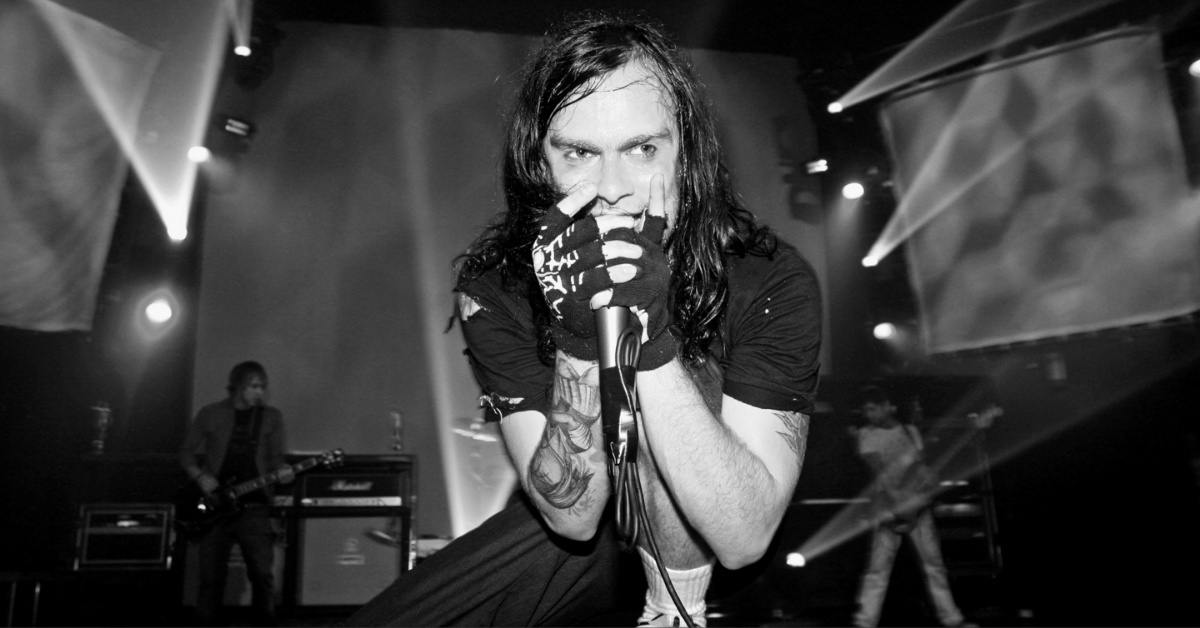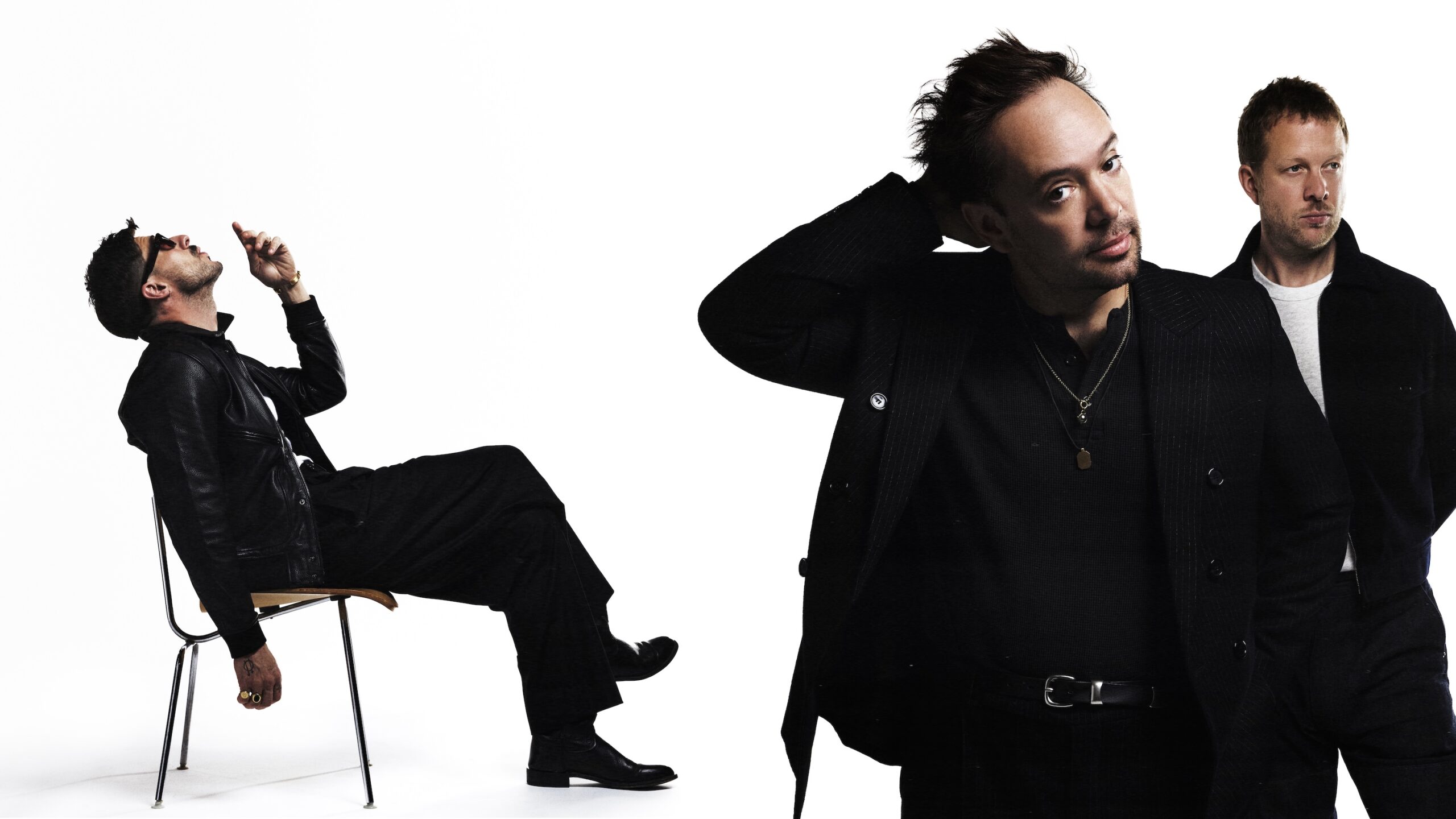Brash, indignant, and unruly, nascar aloe’s head-thrashing, body-convulsing energy is bringing punk’s belligerent urgency to hip-hop.
Elbowing his way out of the underground venues of his North Carolina hometown into LA’s rap circuit, the 24-year-old represents a new wave of punk that is trading in the genre’s outdated foundation of rock ’n’ roll for a fresher sound that incorporates trap beats, lo-fi production, hip-hop, and heavy metal.
Read more: 20 greatest punk-rock drummers of all time
In his childhood bedroom in Lexington, North Carolina, aloe discovered Sex Pistols’ infamous frontman Sid Vicious, an English punk rocker who was incensed with the inequities of the world. Absorbing the indignant messages of Vicious’ furious lyricism, aloe has poured his own anger at the world around him into his music.
Maintaining a distinctly ’80s punk aesthetic and anarchist ethos, aloe is resuscitating punk by pollinating younger scenes with its politically caustic message. “I want a taste of just being street miscreants, protesting, and getting shit done,” aloe says.
He began penning rhymes in high school, building off the eclectic sounds of his surroundings. Entrenched in the roaring trap music scene of the Carolinas, aloe’s vintage punk songwriting utilized a more contemporary structure borrowed from hip-hop’s 16-bar verses.
Self-releasing music on SoundCloud with DIY production, a growing fanbase reveled in the unrestrained energy that he sacrificed to every song uploaded and his high-wattage blend of trap metal and raw 808s. By 2018, aloe’s trademark crown of spiked-up hair was an endearing symbol of the LA underground circuit, as his visceral blend of shocking lyrics, arresting visuals, and aggressive onstage antics thrilled and won over live audiences.
The Cambodian-American rapper’s mainstream breakthrough came with the release of his glitchy single “FED UP!,” leading to collaborations with larger names in the scene like Jasiah and ZillaKami. Two mildly successful EPs and an album later, he was scooped up by Epitaph Records in 2020, releasing his label debut, AMERICAN WASTELAND, in 2022.
Now, with a voracious cult following, aloe hits the road touring his EP, HEY ASSHOLE!, a rock-heavy release that is his most abrasive and raw work to date. With most songs barely breaking the two-minute mark, the adrenaline-fueled project oscillates between vintage punk melodies and blaring, distorted trap metal.
The project’s lead single “DONT 4GET DA NAME,” written and produced by aloe, features a bloody Fight Club-themed music video directed by Gnarlos Wright. And while the lyrics are more bombastic than they are militant, even when aloe is playing the asshole, the tongue-in-cheek persona is the punchline.
For aloe, being punk is an objection, and his music is the protest. “In the end, I was the only one with any anarchy left in me,” Vicious said at the end of his career. As he works on his next album, aloe has a whole lot left to say, and a hell of a lot of anarchy left in him.
What does being punk mean to you?
Being nonconforming, unselfish, and unreasonable, the epitome of apathy. Paying respects to those who come correct, not some figure you’re told to pay respects to.
There’s a lot to be angry with in the world. What are you angry about? What does music do for you, in regards to that?
Underappreciated artists, general population idiocy, [and] American issues gaining more press than countries not as “prestigious.” Music helps to outlet the frustration. Were I not able to make music, I don’t think I’d be mentally stable.
How has your Cambodian culture and that community influenced your sound? How has it influenced your career and attitude?
Being from a small Khmer community in Lexington, North Carolina is a strange circumstance, yet I feel that it created in me something that can’t be replicated. Khmer music is good, too. My grandparents had a massive collection of Khmer karaoke DVDs. Being Cambodian plays a large part in my career, as I intend to get to a point to be able to practice philanthropy in smaller Cambodian towns and villages. Makes me want to try harder.
What kind of music did you listen to growing up at home? Who was your first idol?
Cambodian music quite frequently. My dad was into R&B. My mother’s side of my family was into gospel, country, and a little bit of rock. Wu-Tang a lot. Meth and ODB. The Sex Pistols were a big inspiration when I got into doing live shows.
What was the music scene like growing up in Charlotte? How did you find the underground?
It was a great time. Every show was pure adrenaline. I spoke with a show promoter at the time who had heard my music and found out I was living an hour away. That was the first of many shows scattered all around Charlotte.
How did finding your place in the music scene in Charlotte help you develop your identity and sound?
Being able to express yourself through music is a noteworthy feeling. I was able to do things in Charlotte that Lexington was too small for. Charlotte became a second home where I could just be me.
Do you enjoy the process of writing a song more or performing a live show?
Performing is next to nothing. Having a room full of people you’ve helped or people who want as much destruction as you, if not more. Doesn’t matter how drunk or messed up you are — everyone’s got each other’s backs. I love writing music to play at the shows as well, but I usually do so alone. Get it off my chest.
Do you still produce all of your own music? Do you think you’d want to collaborate with other engineers in the future?
I still produce quite a bit of my music. I found it really hard to feel comfortable making songs on other producers’ beats early on, relying mostly on my own production when I was younger. My arms are wide open to potential collaborations in the future, however. Trying to spread more love.
Tell me about your collective DEATHPROOF INC. What does the community mean for you?
DEATHPROOF is a DIY platform that the homies made with the intention to provide bridges to smaller artists by being in front of audiences and being heard more so that they can potentially jump-start and create momentum for themselves and their art. The community is what makes an artist. I would not be able to have seen half of the places I’ve played shows had someone not said, “We want you to play here.” The community shows love, and we show love right back.
You’ve said that you’re “jealous of a time where everyone was participating in something bigger.” What do you wish our generation would pay attention to?
There’s too much shit going on for anyone to focus. Day in, day out, we’re force-fed our dopamine. I want a taste of just being street miscreants, protesting, and getting shit done.
What do you hope your music might inspire in people?
Spark that little flame inside of them to get up and realize if an Asian American from North Carolina can do what they want, so can they. Inspiration, I suppose.
Who is making good music these days?
Slay Squad, Malice K, Show Me the Body, Trash Talk, the Runts, N8NOFACE, Dirtybutt. I still listen to a lot of older shit. [That’s] just a couple I’ve thrown in rotation as of late.
What’s next for nascar aloe?
Album. One to fuck up your head.






